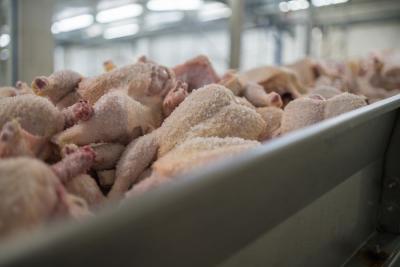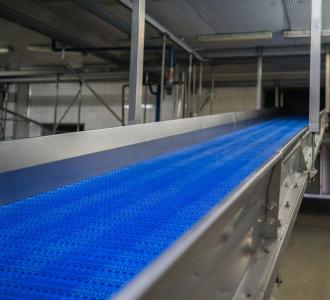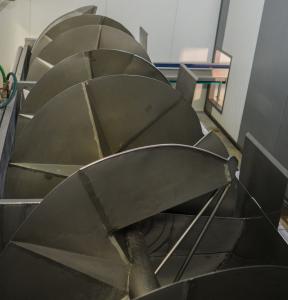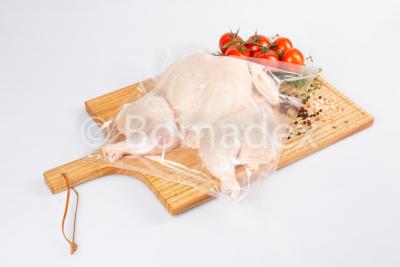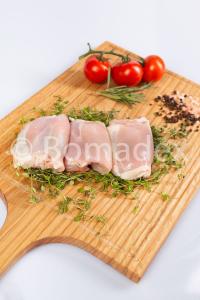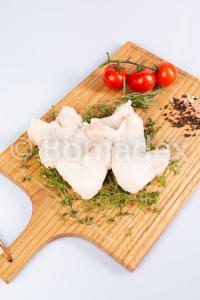Kosher slaughter
In the Old Testament we find indications about animals that can be consumed by humans. From the books of Leviticus and Deuteronomy we learn that animals that chew the cud and have cloven hooves are fit to be eaten. The list includes cattle, poultry, sheep, goats and deer. Camels, hares and pigs are considered unsuitable food. Kosher meat also includes fish and bird meat, as well as locusts.
Sehita rules
In order for meat to be considered kosher, it must come from a slaughterhouse with strictly defined rules set out in the Talmud. Shechita is carried out by a ritual butcher using a sharp non-serrated Chalef knife, which is constantly checked throughout the slaughtering process to ensure that it is sufficiently sharp and that there are no nicks on the knife's edge. Poultry killed with this properly sharpened and unchipped knife can be considered kosher. The shochet cuts the veins and carotid arteries of the animal without prior stunning and pulls the aorta out of the body cavity to facilitate complete bleeding of the animal - everything is done in accordance with humanitarian and religious principles. According to tradition, a shochet can only be an adult, a Talmudic scholar, a man famous for his piety and observance of religious law. To obtain qualifications to perform ritual activities, a shochet must pass an exam in knowledge of kosher rules and humane treatment of animals.
Kosher meat - how to recognize it?
Modern food production technologies are so advanced that evaluating the kosherness of processed food requires in-depth expert knowledge and manual manual inspection on the slaughter line of each poultry carcass. During the whole process of plucking and further processing, we do not use hot water or heat treatment. Each piece of poultry carcass that will be checked and approved by Rabin as kosher remains preserved in table salt for 55 minutes, so as to suck out the remains of unblemished blood and bacteria from the body cavities, then it is subjected to three ritual rinses in separate ritual baths. Meat from our plant receives an individual marking in the form of a Kosher certificate in the Glad degree. All our activities are in accordance with the principles of religion and are subject to strict control by the rabbi who supervises the slaughter and grants the kosher certificate.


